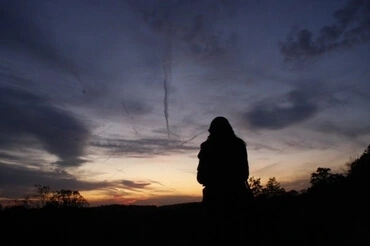Alone

To be alone in the Bible represents being free of evil and false influences. That's why the Lord seeks solitude to pray, and why the nation of Israel is often described as "dwelling alone." When "alone" is used in reference to ownership – when something is "his and his alone" – the meaning is more literal.
In Genesis 2:18, man being alone signifies that the first men became unwilling to be led by the Lord, desiring to lead themselves. In ancient times people who were "Alone" constituted those led by the Lord as celestial men, and evil spirits no longer infested them. But the Jewish church was not meant to be fully under the Lord's guidance and desired to be among the other nations (away from God); and as one who desires is already in evil, this was granted. (Arcana Coelestia 138, 139)
In Genesis 32:24, being alone or by himself signifies good and truth procured. (Arcana Coelestia 4273)
In Exodus 18:14, being alone signifies a state without influx of truth from good from any other source. (Arcana Coelestia 8689)
In Psalm 102:7, alone by itself signifies something of insignificance, and without relative assocation. The state of being alone here symbolizes a prayer of the Lord when in temptations even to despair. (The Inner Meaning of the Prophets and Psalms 352)
In Psalm 136:4, the Lord alone signifies that only the Lord has formed heaven and the church by means of His Divine Truth. (The Inner Meaning of the Prophets and Psalms 386)
Apocalypse Revealed #719
719. Saying to me, "Come, I will show you the judgment of the great harlot who sits on many waters." This symbolizes a revelation about that religion as regards its profanations and adulterations of the Word's truths.
Saying and showing symbolize a revelation. The judgment symbolizes the state of the Roman Catholic religion at its end. The great harlot symbolizes a profanation of the sanctities of the Word and the church, and an adulteration of their goodness and truth. Many waters symbolize the Word's truths adulterated. To sit upon the waters means, symbolically, to possess them and live caught up in them.
To play the harlot, to whore, to behave licentiously and to commit adultery mean, symbolically, to falsify and adulterate the Word, as may be seen in nos. 134, 620, 632 above; and waters symbolize its truths, nos. 50, 563, 614, 685, here those truths adulterated and profaned, because a harlot is said to be on them.
It is apparent from this that "saying to me, I will show you the judgment of the great harlot who sits on many waters," symbolizes a revelation about the aforesaid religion as regards its profanations and adulterations of the Word's truths.
[2] Something similar is said about Babel in Jeremiah:
...Jehovah will... do what He spoke against the inhabitants of Babel. You who dwell upon many waters, abundant in treasures, your end is coming, the measure of your material gain. (Jeremiah 51:12-13)
We say that Roman Catholics adulterated and profaned the Word's truths, because they used the Word's truths to gain dominion over the sanctities of the church and over heaven and to claim for themselves the Lord's Divine power; and to use the Word's truths to gain dominion over the sanctities of the church and heaven is to adulterate them, and to use them to claim for oneself the Lord's Divine power is to profane them.
People know that they use the Word to defend their dogmas. But read those dogmas attentively and you will see that they have used everything that they have taken from the Word to gain dominion over people's souls and to acquire for themselves a power, authority and majesty that is Divine.
It is for this reason that Babylon is named the Mother of the Whoredoms and Abominations of the Earth in verse 5.






